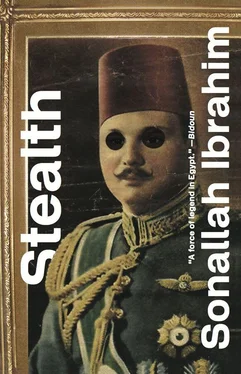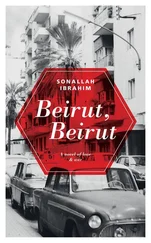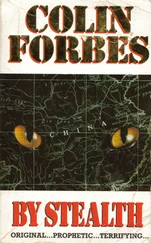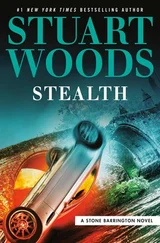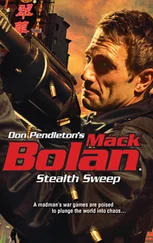He brushes the surface of his fez with the sleeve of his suit coat. He twists the two sides of his moustache all the way up to his nostrils then lets them loose. He brushes them with his fingers. He opens the glass inner doors of the balcony and takes hold of the wooden shutter doors by their side hooks. He pushes them open and fastens them in place with the hooks. He closes the glass doors again. I ask him to close the door of the room when he leaves, and I listen to the sound of him shutting the door to the apartment and to his lazy steps on the outer stairs.
The sound of his feet grows distant. I leave the chair at my desk. I throw off the blanket that I’ve wrapped around myself. I pull the door of the dresser open a crack. I look through the clothes that are all scattered and messed up. I drag over the desk chair and stand on it. I see the book shoved against the side of the top shelf. The constable brought it, and right away I wanted to look at it, but father scolded me. It’s a small book in a foreign language. Folded across two pages of it is a statue of a naked woman. The name “Venus” appears in the caption. I flip through the rest of the pages and put it back in its place.
I study the other things on the shelf. Bottles of medicine. A fine glass tube with a red label: Carter Pills, to aid digestion. Belmonks for coughs. A bottle of Aspro brand aspirin. Brockton Drops. Half a piece of nutmeg. Father puts a dash under his tongue whenever he drinks a cup of coffee. A jar filled with bicarbonate of soda powder. He dissolves it in water and takes whiffs from it. A tattered doll from the holiday fair on the prophet’s birthday. Another plastic bottle with two pieces of black dried prune. Father uses it when he can’t go. A book with a colored cover called The Queen’s Messenger. The inside page has an ad for “Zayiz brand Armchairs” and another for “Otter Brandy.” Cupping glasses stacked on top of each other. A big government notebook full of journal entries written by mother. She writes large round letters in it with a pencil. She finishes on a line and then skips the next line and writes some more. She reads out some of what she has written to father. I hear the names “Hitler,” “Gandhi,” and “Miles Lampson.”
A small can with several identity cards that have father’s name on them. The title “Bey” doesn’t appear after his name. He says that it is only written with the first rank beys and that he is only a second rank one. Two old pictures, the size of postcards. The first one has a grey border around an oval frame. Inside is a child wearing a long embroidered dress and white sandals. A white towel hangs around his neck and dangles at his chest. He’s standing near the top of a flight of stairs. His hand is clutching a stone railing and it’s hard to make out the details of his face. I turn it over. On the back is my full name with the name of father, written in my mother’s hand.
The other picture has my father sitting wearing a fez and a tie. Between his knees a small child wearing a two-piece shorts suit is standing. Its first piece starts at the neck, and its second goes all the way down to the knees. The picture is in black and white, except for the child’s clothes. The suit is a blue-green color with two yellow stripes around the wrists and around the waist. On the back, there’s my name and father’s name too. The handwriting is my mother’s.
I search in the rest of the drawers. A book called The Family Doctor. I flip through the pages. Twisted faces on a torn page. Another book about high prayer has the fatiha in it and some prayers of supplication. Alboosiry’s The Prophet’s Cloak. Things of Merit and Their Opposites by Al-Jahiz. A page is dog-eared. At the top of it there’s a title in bold: “The Glories of Marriage.” An issue of the magazine Pocket Chat. On the top cover is a colored picture of a beautiful foreign actress. In the corner, there’s a circle around the price: 20 millimes. I throw it on top of the bed. A huge book has white strips of paper dangling from the sides of some of its pages. I take it and climb down.
I lie down on the bed and roll over on the covers. I flip through the pages of the magazine. A picture of a woman shows her from the back wearing nothing but small underpants. I stop for a while at the cartoons. Most of them are about men with big bellies smoking cigars. War profiteers. A drawing of two men with a caption that reads: “At the Industrial Agricultural Exposition.” One of them says: “How could you bring your mother-in-law to the exposition?” The second says: “I told myself bring her. God is generous. Maybe he’ll bless us and she’ll get lost in the crowd.”
One says to another: “Prices are on fire. Come on, let’s warm ourselves.”
I throw the magazine to one side and take up the huge book. The Great Star of Knowledge. Its pages are yellow. There is a dark block print in the middle of the page and all around it. It’s hard to make out the letters. There are circles and squares divided into columns and joined to form numbers and words. I open up to the pages with the white strips dangling from them. How to achieve compromise between man and wife. How to increase income. How to overcome forgetfulness. How to live a long life. How to expel insects from the house. How to increase understanding and memorization. To restore eyesight. To suppress desire. To accumulate wealth without effort. To disappear in front of human eyes. To fulfill one’s needs and stand before high officials. For the slow learner to overcome his problems in comprehension and memorization.
I close the book and put both it and the magazine back in their place in the drawer. I take out the small brass kettle from under the bed. I spoon out a little bit of sugar and half the bag of chickpeas. I sit with my legs crossed at the edge of the rug near the door. I put the kettle in front of me on the bare floor. I crush the mixture with the handle of the kettle. I keep crushing it until it turns into a smooth yellow paste. I get rid of a clump of it that sticks to the handle. Then I remember the spoons are all in the living area. I look at the closed door. I hold the kettle in my hands and dip a finger in to eat from it.
I stop behind the door of the balcony. A fenugreek seed has been planted there in a cup. A thin green stalk has sprouted from it and sways in the wind. The balcony across from us is lit up. The curtains are open but the glass doors are shut. One of the two sisters stares out at me from behind them. Um Safwat comes out from the door of the house. She is tall and light-skinned. Her hair is uncovered. It is smooth and she has had it cut short. She wears a colored scarf around her neck. Her face has been powdered. Her son is trailing behind her. He’s about my age. He is wearing a clean, pressed suit. He walks with head bowed. She’s screaming at him.
I pull back from the cold. I set the kettle on top of the table. I take a tangerine. I peel it and then toss the peel and seeds underneath the bed. I bend over and pull out the large suitcase with the battered side. I lift the top part. Inside, it is lined with blue paper. Books with tattered pages. Some of them have been scribbled over with pencil. One book has a scary colored cover and the title, The Abandoned Castle. A thin, webbing army belt, drab olive in color with a brass buckle, is used for tying up the suitcase when it’s stored. An old check register. A gas mask. Small pieces of pencil. Empty match boxes. Ashtrays made of porcelain. The small statues behind the closed glass doors of the small cupboard. A round tray of colored porcelain with Japanese drawings. Another’s in the shape of a rectangle and forms a metal shield with holes in it. I put it in front of me on the rug. I push it along and take turns whistling once like a train, once like a car horn. I line up the chairs of the dining table in a row. I hang the ticket collector’s bag over my shoulder. The ticket book is in my hand. My father made it from colored paper that he fastened into a book with cardboard and string.
Читать дальше
